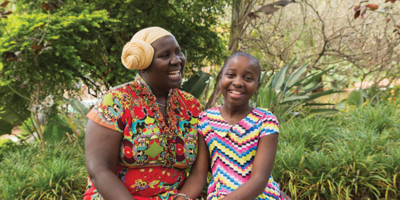
Women’s health and sex inequalities
Women’s health is frequently considered in terms of reproductive health, birthing and childcare. However, focussing on reproductive health fails to capture the diverse needs of girls and older women. Furthermore, such a focus misrepresents the fact that injury and non-communicable diseases (NCDs), such as stroke and heart disease, are now the biggest killers of women globally. A novel, life-course approach that prioritises NCDs alongside reproductive health issues is necessary.
In recognition of the shifting disease burden in women, in 2015 Professor Robyn Norton and Oxford colleagues co-authored Women’s Health: A New Global Agenda. This Oxford Martin School policy paper advocates for NCD research that takes a gendered approach to the collection of health data and examines sex and gender differences in opportunities and barriers to pathways to care. With this evidence, novel interventions that extend and improve health care for women globally can be developed.
These goals are reflected in the Oxford Women’s Health Programme’s two main initiatives:
- A body of research that explores sex differences in risk factors, health care access, research coverage, treatment and outcomes, particularly those related to NCDs and injury; and
- Projects that aim to assess the relationship between high-risk pregnancy and NCDs, and to integrate NCD care within maternal health services.
In addition to these research initiatives, the UK team facilitates a Community on Women and NCDs, a virtual network hosted by the World Health Organization’s Global Coordination Mechanism on NCDs, and co-chairs the Taskforce on Women and NCDs. These networks promote sex-specific and gender-equitable approaches to NCD prevention and care globally, and provide platforms for the Women’s Health Programme to advocate that its research is incorporated into policy and practice.
Sex-Specific Analyses
There is considerable evidence of women being undertreated or presenting disease in a different way to men. However, not enough is being done to understand these differences, which is a critical first step in creating evidence-based policies, trainings and other interventions that improve recognition of sex differences and reduce gendered health inequities. Our researchers and advocacy team are working to change this, both in the UK and globally.
This initiative is led by Professor Mark Woodward and Dr Sanne Peters and focusses primarily on sex differences in heart disease, stroke, dementia and diabetes. Their discoveries include findings that well-known risk factors, such as smoking and diseases like diabetes, modify risk of NCDs differently in men and women. They have also identified sex differences in access to important life-saving medications in patients who suffer heart attack. Taken together, the team’s work has resulted in a large number of publications in major academic journals.
Furthermore, the team advocates for policy changes, including required sex- and gender-specific reporting in academic journals and a more equitable balance of male and female patients in clinical trials. Collectively, the sex and gender research and advocacy initiative is improving the quality and amount of data that can help us describe sex and gender differences and develop an appropriate evidence-based response.
Integrating NCD Care with Maternal Health Services
In the UK, Professor Jane Hirst is leading research into the long-term health impact of NCDs during pregnancy. She is investigating interventions in China to prevent the later onset of type 2 diabetes in women following a pregnancy with gestational diabetes mellitus, a condition affecting around 1 in 6 women globally. A feasibility study in Western China is due to be completed late 2019, with a view to collaborating with several partners in China to test the acceptability and effectiveness of different interventions after birth.
In collaboration with the George Institute for Global Health (India), SMARTHealth Pregnancy has been developed by Prof Hirst, Dr Shobhana Nagraj, Prof Robyn Norton, Dr Lisa Hinton, Prof Stephen Kennedy and Dr D Praveen. The goal of SMART Health Pregnancy is to improve the detection and management of high risk pregnancy conditions in the community, with targeted post-pregnancy care to prevent longer-term complications. The intervention specifically targets hypertension, anaemia and gestational diabetes and addresses long-term risks of cardiovascular disease and type 2 diabetes.
Community health workers are trained to use a smartphone application designed to identify and follow-up high-risk patients in the community, with electronic referral and advice from primary and secondary care physicians. The application contains clinical decision support algorithms, based on local clinical guidelines, ensuring that people receive evidence-based and quality care. The application is currently being trialed in India, and if successful, could be scaled to other populations in India and internationally.








































